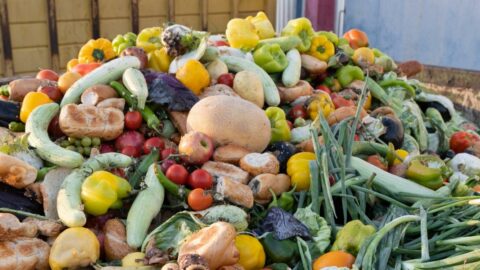At the very core of our planet’s intricate web of life lies a concept often overlooked but fundamentally essential: ecosystem services. Breaking down the term, an “ecosystem” is a community of interacting organisms and their physical environment, working in unity. The word “services” implies acts of help or assistance. Thus, when combined, “ecosystem services” refers to the myriad benefits and assistance we, and other life forms, obtain from the natural environment. Simply put, these services are nature’s way of ensuring a harmonious and sustainable life for every creature on Earth.
Four Types of Ecosystem Services
Within the broad umbrella of ecosystem services, experts have identified four primary categories: provisioning, regulating, supporting, and cultural services. Each of these plays a unique role in supporting life as we know it.
 1. Provisioning Services: Nature’s Bounty
1. Provisioning Services: Nature’s Bounty
Starting with provisioning services, these refer to the tangible products that ecosystems offer. This encompasses everything from the food we eat to the raw materials we use for shelter and clothing. For instance, forests provide timber, fruits, and medicinal plants. Oceans offer fish, a staple in diets worldwide. It’s a continuous cycle where nature generously provides, and in return, organisms play their part in maintaining this balance.
2. Regulating Services: Nature’s Equilibrium
Regulating services are the natural processes by which ecosystems moderate and control essential conditions and processes on our planet. Forests, often referred to as the lungs of our planet, play a dual role. They absorb carbon dioxide, helping mitigate the effects of climate change, and release oxygen, which we and other creatures breathe. Wetlands act as natural purifiers, filtering out pollutants from water, ensuring clean rivers and lakes, benefitting both human communities and aquatic species.
3. Supporting Services: Foundations of Nature’s Framework
Our understanding of ecosystem services wouldn’t be complete without recognizing the foundational processes and systems that underlie the more visible services we depend on daily. These are the “supporting services.”
Soil Formation and Fertility: Beneath our feet, intricate processes are continually occurring. Healthy ecosystems play a pivotal role in nurturing and maintaining soil health. Consider earthworms, often termed the “engineers of soil.” These wriggly creatures aerate the ground as they move, enhancing soil structure. This activity increases water retention, reduces erosion, and facilitates nutrient cycling. When earthworms break down organic matter, they enrich the soil, making it fertile and conducive for plant growth.
Photosynthesis and Oxygen Production: The greenery around us, from towering trees to humble grasses, partakes in a miraculous process: photosynthesis. By converting sunlight into energy, plants not only sustain themselves but also produce the oxygen we breathe. It’s not just land plants; oceanic plankton plays a colossal role. Though microscopic, plankton contributes to a significant chunk of the world’s oxygen production, reiterating the interconnectedness of ecosystems.
Nutrient Cycling: Ecosystems have an innate ability to recycle essential nutrients, ensuring they remain within the environment and are available for plants and animals. Mangroves stand as a prime example. Thriving at the convergence of land and sea, these unique forests trap sediments and nutrients, preventing them from being washed away. They act as natural filters, playing a critical role in coastal nutrient cycling and ensuring the health of marine ecosystems.
4. Cultural Services: Beyond the Tangible
Lastly, we delve into cultural services, which move beyond the tangible and enter the realm of the emotional and spiritual. These are the benefits we derive from ecosystems that enrich our experiences and cultural identity. Think of the serenity one feels while walking through a dense forest, or the spiritual connection many indigenous communities have with certain landscapes. Nature is not just a provider of goods but also a source of inspiration, recreation, and cultural identity.
It’s clear that the services rendered by our ecosystems are not just transactions; they’re relationships. Relationships that intertwine every living being into a delicate yet resilient dance of give-and-take, ensuring the planet’s health and harmony.
The Economic Value of Ecosystem Services: Quantifying the Priceless
At first glance, attempting to assign a monetary value to ecosystem services might seem like trying to put a price tag on the air we breathe or the beauty of a sunset. However, economists and ecologists have ventured into this complex territory, aiming to translate the intricate benefits of nature into a language that policymakers and businesses might better understand: dollars and cents.

Research led by the likes of Robert Costanza, an ecological economist, has tried to estimate the global value of ecosystem services. In a groundbreaking study published in the late 1990s, Costanza and his team estimated the annual value of global ecosystem services to be between $16 and $54 trillion, with an average of $33 trillion. To put this in context, that value exceeded the global gross national product at the time!
Carbon Offsets and Ecosystem Services:
Carbon offsets play a role in the economic valuation of certain ecosystem services, particularly those tied to climate regulation. Forests, for instance, are colossal carbon sinks. By absorbing and storing carbon dioxide, forests provide a service that, in the age of climate change, has become incredibly vital. The carbon offset market has emerged in this context, allowing entities to “offset” their emissions by investing in projects that reduce or capture an equivalent amount of greenhouse gases. This includes reforestation projects or initiatives to prevent deforestation.
The Potential of “Eco-Taxes” and Penalties:
If we were to truly integrate the value of ecosystem services into our economic systems, it might revolutionize the way businesses operate. Industries that damage ecosystem services, like those contributing to deforestation, water pollution, or biodiversity loss, could be levied with “eco-taxes.” This approach has been considered in some regions. The idea is that by making environmental degradation economically unattractive, businesses would be incentivized to adopt more sustainable practices.
Additionally, implementing a system of credits, similar to the carbon offset market, might be feasible. Companies could earn credits for positively contributing to ecosystem services (like rehabilitating a wetland or supporting sustainable agriculture) and could trade these credits in a regulated market.
Challenges and Critiques:
While many champion the economic valuation of ecosystem services as a way to promote conservation, the approach isn’t without its critics. Some argue that it’s reductionist to boil down the vast and intricate benefits of nature to mere numbers. There’s also the challenge of accurately measuring the value of services and the potential for these estimations to be used to justify environmental degradation if the price is right.
Assigning economic value to ecosystem services offers a compelling avenue to drive home the significance of these services in terms policymakers and businesses can grasp. While it’s a tool in the broader conservation toolkit, it’s essential to remember that the true value of nature transcends any price tag we might assign.
Threats to Ecosystem Services: The Human Footprint on Nature’s Delicate Balance
Ecosystem services, though robust in many ways, are alarmingly vulnerable to human interference. Our ever-expanding footprint on the planet has brought numerous threats to these vital systems.

Pollution: Whether it’s plastic in our oceans or chemicals in our rivers, pollution is a direct assault on ecosystem services. Contaminated waters can kill marine life, reduce water quality, and impact the ecosystems that rely on these water bodies. Air pollution can affect pollinators, crucial for food production, and even stunt the growth of trees.
Overexploitation: Overfishing, overhunting, and overharvesting are all too common and have dire consequences. Stripping ecosystems of their resources faster than they can replenish can lead to collapse, endangering both the species within them and the services they provide.
Invasive Species: The introduction of non-native species can disrupt local ecosystems. These invaders can outcompete, prey on, or bring diseases to native species, leading to a decline in biodiversity and consequently, a decline in ecosystem efficiency and services.
Climate Change: Rising temperatures, altered precipitation patterns, and extreme weather events can all wreak havoc on ecosystems. Coral reefs, for example, are particularly sensitive to temperature changes. As they bleach and die, we lose a significant marine habitat and a natural barrier against coastal erosion.
In essence, our actions have a ripple effect, often more profound than we realize. The loss of even one species or habitat can have a domino effect, setting off a chain of events that might culminate in the decline or collapse of invaluable ecosystem services. Recognizing these threats is the first step towards ensuring the preservation and health of our planet’s life-supporting systems.
The Way Forward: Protecting Ecosystem Services:
So, how do we ensure the continuity of these services? Sustainable development is a key player. By harmonizing our needs with environmental considerations, we can safeguard ecosystem services. There are heartening instances of community-led initiatives making strides. Local populations, understanding the intricacies of their environment, often lead conservation efforts with profound impacts. Alongside, effective policy-making, grounded in ecological considerations, is indispensable in conserving ecosystem services.
Ecosystem services, in all their varied forms, are fundamental to our existence and the health of our planet. As we move forward, it’s imperative to recognize their value, not just in economic terms but as essential components of our global heritage. The call to action is clear: Adopt sustainable practices, champion conservation, and ensure that the intricate web of life remains intact for generations to come.
- 30 Environmental Activities to Feed Your Mind, Body & Soul - December 19, 2023
- Exploring the Wonders of Dark Sky Parks: A Stargazer’s Paradise - December 19, 2023
- Biodiversity Loss – A Crisis in the Making - December 12, 2023

 1. Provisioning Services: Nature’s Bounty
1. Provisioning Services: Nature’s Bounty









